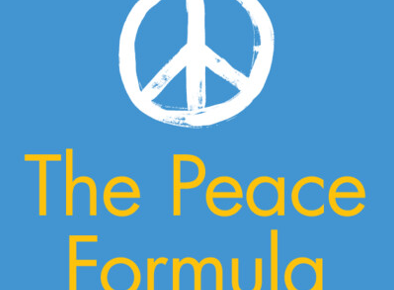
Politicians frequently derail peace efforts by prioritizing short-term political gains over long-term stability. Take the example of Nicaragua, where during the Cold War the United States propped up the infamous Contra rebel organization that fought the Soviet-backed Sandinista government. The ensuing war lasted nine long years, and led to a large death toll.
My new book, The Peace Formula, offers an accessible, non-technical synthesis of empirical peacebuilding research from hundreds of studies. It demonstrates that the example above represents just the tip of the iceberg, with strong evidence that widespread misconceptions continue to jeopardize peace efforts. The book argues that, rather than making quick deals with dubious leaders, global focus should be on strengthening the essential pillars of lasting peace: democratic institutions, a productive economy, and security guarantees. Hundreds of empirical studies have shown that these three factors are of paramount importance for sustainable peace. When people have a democratic voice and promising economic prospects, warlords and autocrats find it harder to recruit them into violent conflicts. Moreover, security guarantees and strong state capacity are essential for implementing effective public policies.
But if we cannot rely on leaders to “do the right thing” and implement evidence-based peace policies, what role can ordinary citizens play in making a difference? First, we need to adopt the right mindset, which one may call “smart idealism.” This approach combines the goal of improving society with a commitment to using evidence-based methods. Pursuing peace requires not just good intentions but a focus on policies that have been proven to work, emphasizing the importance of integrating rigorous research with practical efforts to drive meaningful societal change.
Blindly trusting politicians is risky because their incentives often skew toward short-term gains scoring them points rather than tackling deeper issues. Studies show that government relief, for example, tends to flow more to areas with higher media coverage or voter turnout. Ensuring that politicians’ success depends on public concern for peace and justice is crucial, as it pushes them to act not just for political gain but for societal good.
Throughout history, domestic movements fighting for democracy and human rights have often benefited from international attention, which helps expose bad regimes. In South Africa, the world’s eventual outcry –after years of looking away– helped finally end the cruel apartheid regime, just as global disapproval aided the fall of Pinochet in Chile and Fujimori in Peru. These transitions were largely driven by local populations, but international scrutiny helped.
Modern despots, aware of the impact of global public opinion, have grown increasingly skilled at manipulating the narrative, restricting information, and silencing journalists. The book discusses evidence of governments timing controversial decisions or military actions to coincide with major global distractions—natural disasters, elections, or high-profile sporting events. Recent evidence reveals that during international distractions, in many countries domestic opposition movements tend to scale down peaceful democratic actions and retreat, understanding the heightened risk of repression when global attention is diverted.
To counter this, independent media must investigate and reach an engaged audience. So, next time we weigh reading the news against watching “grumpy cat” videos on social media, remember that an informed and active citizenry forms democracy’s backbone, encouraging leaders to pursue evidence-based policies that serve the greater good.
Latest Comments
Have your say!